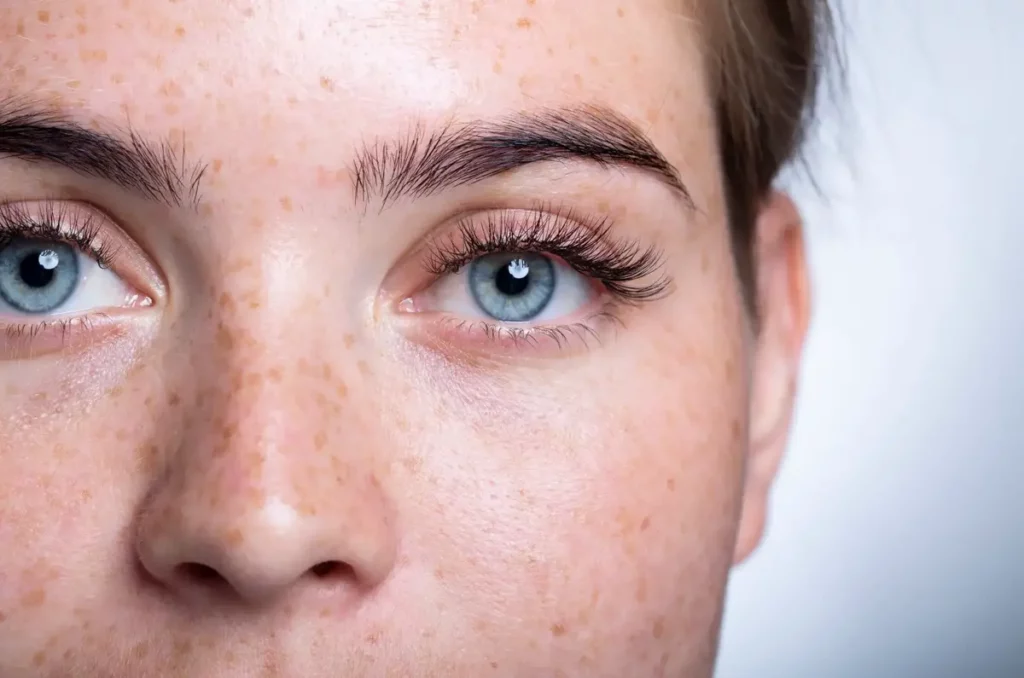The eyes are regarded as the most crucial sensory organ, as we receive up to 80 percent of all impressions through our vision.
Our sense of sight accounts for the majority of the information we gather from all five senses combined.
The movements we make, the tasks we accomplish, and our personal interactions all depend on vision in some way.
Even our sleep patterns are influenced by the light we encounter during the day, making it crucial to maintain healthy eyes.
While eyesight deterioration is a natural aspect of aging and typically isn’t a cause for concern, one of the key symptoms can be the presence of eye floaters.

Many people feel relieved to discover they are not alone in experiencing floaters.
One person wrote, “I’ve learned about something new today called ‘floaters.’ I always thought I had something in my eye.”
Another person adds, “I keep seeing ‘flies’ everywhere. I rub my eye, but there’s really nothing there; it’s so frustrating. I have constant floaters.”
A third individual responds, “I thought this was just me! I keep thinking there’s a spider or fly… waving my arms like I’m crazy, only to realize it’s a floater.”
Eye floaters are quite common, affecting around seven out of ten people, and they can appear at any time.

According to the Mayo Clinic, “Eye floaters are spots in your vision. They may appear as black or gray specks, strings, or cobwebs, drifting around when you move your eyes.
Floaters tend to dart away when you try to look at them directly.”
Most issues with eye floaters are caused by age-related changes, where the jelly-like substance (vitreous) inside the eyes liquefies and contracts.
“As you age, the protein fibers that make up the vitreous shrink into tiny shreds that clump together,” writes WebMD specialist Rick Ansorge.
Scattered clumps of collagen fibers develop within the vitreous and can cast tiny shadows on your retina. These shadows are what you perceive as floaters.
Eye floaters are usually not serious and generally do not warrant concern.
The NHS states that if you have experienced floaters for a long time, they are not worsening, and your vision is not affected, there is no need for concern.

You are more likely to experience eye floaters if you are nearsighted or have undergone cataract surgery.
While eye floaters are generally not a serious threat to your sight, they can sometimes indicate underlying issues such as eye disease, eye injury, diabetic retinopathy, crystal-like deposits in the vitreous, or even eye tumors, according to WebMD.
The NHS also advises that it is a medical emergency if you experience floaters or flashes for the first time, encounter sudden onset floaters, or notice an increase in their number.
Other signs that may indicate a more serious issue include a dark ‘curtain’ or shadow moving across your vision, blurred vision, eye pain, and the presence of floaters after surgery or an eye injury.
Any of these symptoms could signal serious problems with the back of the eye.
For the most part, floaters are common and harmless. However, if they become bothersome, experts suggest that you can try to move them out of your field of vision by shifting the fluid in your eyes.
You can achieve this by looking up and down.
Taking supplements for eye health, such as omega-3, zinc, vitamin A, and fatty acids, can also be beneficial. Additionally, maintaining a healthy, balanced diet and avoiding smoking can further enhance your vision.





